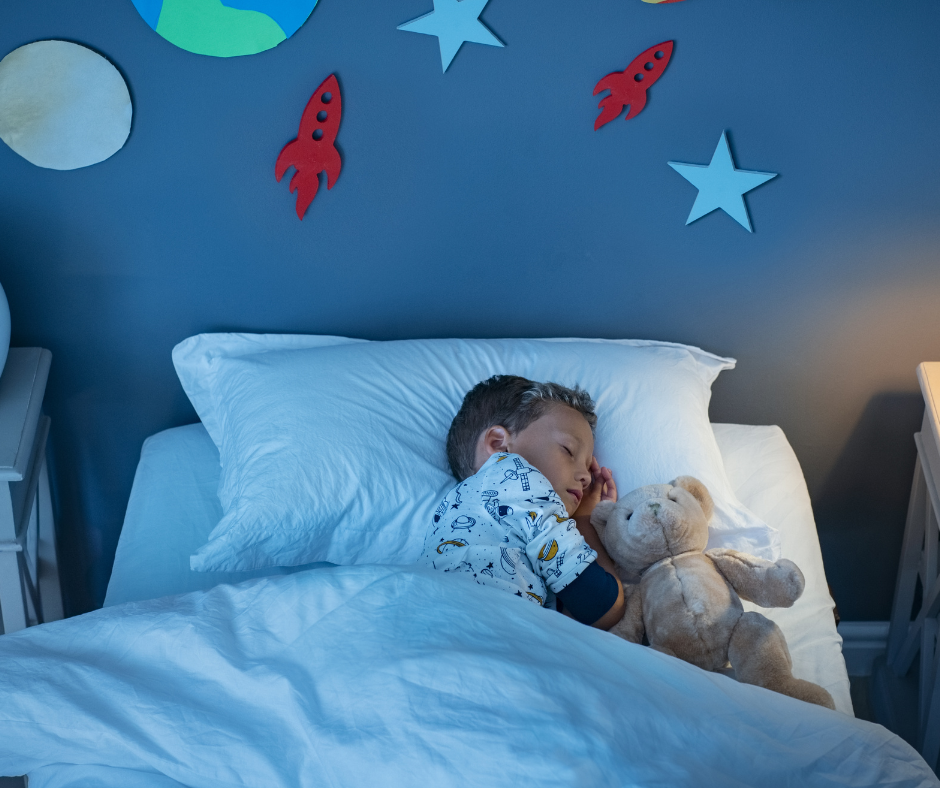Time for Bed. . .The Effects of Sleep on Your Child’s Well-Being

I don’t know about you, but when I don’t get enough sleep, I’m GRUMPY. I’ve even been commanded to “Go to bed” because of my grumps, and I’m 44 years old! Maybe this sounds like someone you know your child, for example. Did you know that without the proper amount of sleep, your child’s mental, physical, and emotional health are at risk? As a school-based mental health therapist, one of the first questions I ask my students is, “How much sleep did you get last night?” Their answer provides a flood of information as to how their day will proceed.
Sleep hygiene is an important aspect of a child’s overall well-being and the amount of sleep a child receives is dependent on age. If they don’t get the recommended amount of a restful night’s sleep, your child (and you!) could suffer.
How Much Sleep Do Kids Need?
How much sleep kids need varies by age. While every child is different, Kidshealth.org recommends:
- infants (0–3 months): 14–17 hours, including naps
- infants (4–12 months): 12–16 hours, including naps
- toddlers (1–2 years): 11–14 hours, including naps
- preschool (3–5 years): 10–13 hours, including naps
- school-age (6–13 years): 9–12 hours
- teens (14–17 years): 8–10 hours
How Can I Tell if My Child Isn’t Getting Enough Sleep?
A child who isn’t getting enough sleep may exhibit:
- Hyperactivity. (Sleeplessness can mimic the signs of ADHD.)
- Moodiness and irritability.
- Symptoms of depression and/or anxiety.
- Inability to focus and concentrate. (This can have major ramifications on academics.)
What Can Help Kids Sleep?
Below, you will find Sleepfoundation.org’s suggestions that will assist in transitioning your child from wakeful to sleepy. Establishing a healthy bedtime routine will signal the body that bedtime is near. It’s also important to ensure your putting your child to bed when they are sleepy, not when they are already asleep.
- Turn those screens off, and bright lights too; at least one hour before bedtime, two hours is preferred. The blue light emitted from many of our screens restrains the production of melatonin. Melatonin is crucial in assisting us in going to bed and waking us up the next day.
- Before considering administering Melatonin to your child, speak with your child’s pediatrician.
- A warm bath or shower one to two hours before bed will help lower that core temperature allowing your child to fall asleep faster.
- Putting on pajamas and brushing their teeth.
- Read a bedtime story. May I suggest “How Do Dinosaurs Say Goodnight” or “Herman Jiggle, Go to Sleep”.
After having tried a consistent bedtime routine, if your child continues to struggle with sleep, seeking advice from your pediatrician is recommended as there may be other issues involved.
Good night.
by Jackie Nova, School-Based Mental Health Therapist at Brentwood Elementary


